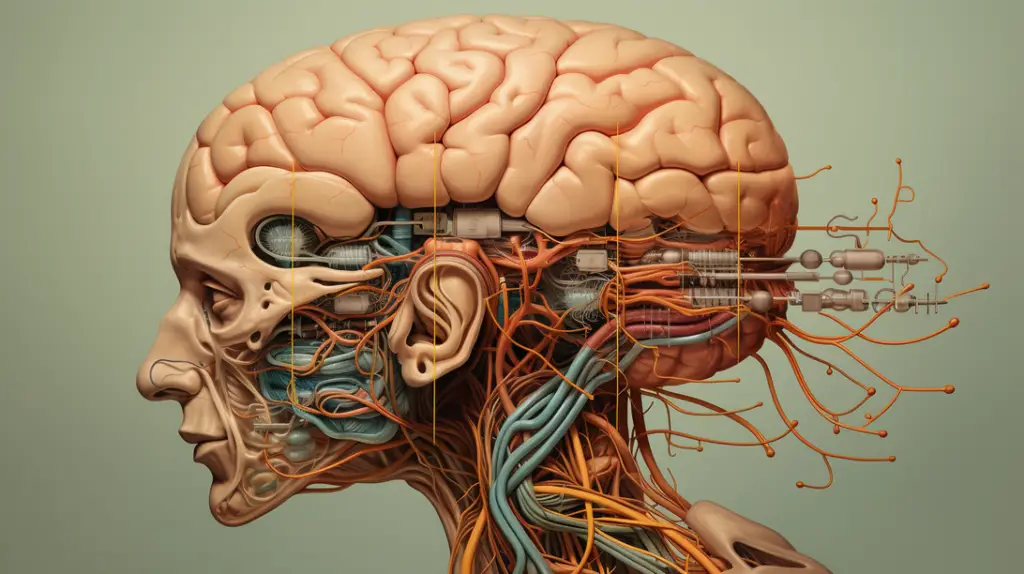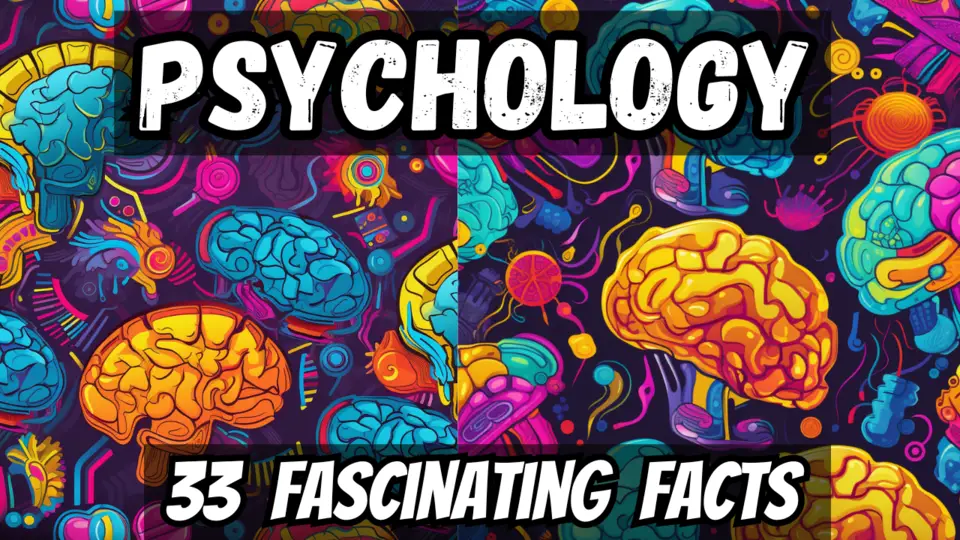The human brain is one of the most complex and impressive organs of the human body. It is the command center for all our actions and thoughts, from the simplest to the most complex.
In this article we’ll delve into 44 fascinating facts about the human brain:
- The human brain is the largest brain in relation to body size among all animal species.
- The human brain is made up of approximately 86 billion neurons.
- During the period of rapid growth in early childhood, 250,000 new neurons are produced every minute.
- The human brain is about 60% fat, making it one of the organs with the highest proportion of fats in the body.
- A healthy brain consumes 20% of the total oxygen and calories of the body.
- The brain is the most active organ in the human body and remains active even during sleep.
- The left part of the brain controls the right part of the body, while the right part of the brain controls the left part of the body.
- Despite popular myths, people use more than 10% of their brain. In fact, every part of the brain has a specific purpose.
- The human brain does not feel pain. Although the brain interprets pain signals from other parts of the body, the brain itself does not have pain receptors.
- Neuroplasticity is the ability of the brain to reorganize and form new neuronal connections throughout life.
READ MORE: 33 Fascinating Facts About Psychology - Short-term memory is temporarily stored in the prefrontal lobes, while long-term memory is stored in the hippocampus.
- The human brain can survive for 4-6 minutes without oxygen, after which permanent damage begins to occur.
- A newborn’s brain grows almost three times in its first 12 months.
- Despite the brain accounting for only 2% of the body’s total weight, it consumes up to 20% of the body’s total energy.
- On average, a human brain has the capacity to store 1 petabyte of information. That would be the equivalent of about 20 million filing cabinets full of documents.
- The human brain is one of the most protected organs of the body. It is surrounded by cerebrospinal fluid, which functions as a cushion to protect the brain from injuries.
- Neurons continue to grow throughout life. The process is known as neurogenesis.
- The human brain reaches its maximum size at the age of 20.
- The brain can “repair” itself through the process of neuroplasticity, in which it forms new connections and neural pathways to compensate for losses or changes.
- Most of the brain’s growth occurs in the first five years of a child’s life.
READ MORE: What is Psychology? What are the Fields of Psychology? - The human brain can generate up to 50,000 thoughts each day.
- The brain contains billions of neurons, which can generate electricity when they transmit signals. This electrical activity can be measured and visualized through electroencephalography (EEG).
- Although the brain is largely made of fat, it is a very active organ. In fact, even during sleep, the brain burns more calories than any other organ.
- The brain’s prefrontal lobes, which are responsible for abstract thinking, planning, memory, and impulse control, are the last part of the brain to mature.
- At birth, the brain is about one-third the size of an adult brain. In the first years of life, children’s brains grow rapidly and reach 90% of adult size by the age of 6.
- The brain produces 500 ml of cerebrospinal fluid each day, which protects and nourishes the brain and spinal cord.
- There are approximately 100,000 kilometers of blood vessels in the human brain.
- The brain also contains an immense number of synapses, approximately 100 trillion synapses, which allow neurons to transmit signals and communicate with each other.
- The brain can process information at speeds of up to 120 meters per second.
- Neurotransmitters, such as dopamine, serotonin, and norepinephrine, play a crucial role in regulating mood and behavior.
READ MORE: 20 Interesting Facts About Albert Bandura’s Life & Contribution to Psychology - Despite popular perception, there is no significant difference in brain size between men and women.
- The brain has a protective barrier known as the blood-brain barrier, which prevents most substances in the blood from entering the brain.
- Not all parts of the brain require sleep. Some functions, such as regulating heart rate and breathing, continue to operate normally during sleep.
- The brain is the only organ that contains a person’s entire life experience, including memories, knowledge, and skills.
- The human brain can generate an electric current of about 20 watts when awake – enough to power a light bulb.
- The brain has the ability to “heal itself” – although the process is slow and incomplete in certain situations.
- While you rest or sleep, the brain continues to process information, consolidate memory, and “clean” waste.
- The brain is responsible for dreaming. Most dreams occur during REM sleep (rapid eye movement) when brain activity is almost as intense as when we are awake.
- As you age, the brain can lose up to a gram per year.
- The brain has the ability to anticipate the future and plan for it – this is a unique trait of the human brain.
READ MORE: Louis Wain’s Cats: The Connection between Mental Illness and Art - The brain has an enormous capacity for adaptation. In the event of accidents or illnesses that affect certain parts of the brain, other parts can take over some of the lost functions.
- The brain contains about 25% of the body’s total cholesterol. This cholesterol is essential for neuron health and the production of neurotransmitters.
- Most of the information the brain receives is ignored. It selects only the information it considers relevant to process.
- Despite advances in neuroscience, the brain remains largely a mystery. There are still many aspects of brain function that scientists do not fully understand.
Now watch the video presentation:



